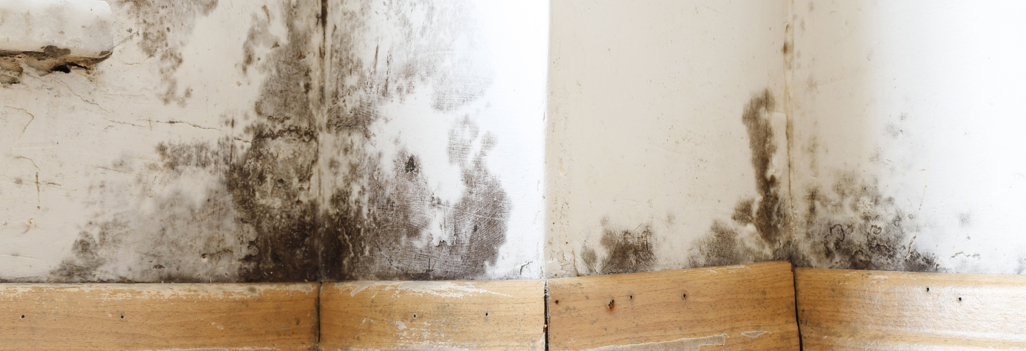Awaab's Law
What Awaab's Law means for you
On 27 October 2025, Awaab’s Law was introduced.
The new law exists to make sure that all customers have a safe, comfortable and healthy home, and that landlords act quickly when damp and mould problems, and other serious issues, are reported.
Keeping you safe
Your safety is our priority. When you report a problem in your home, we'll act quickly, and make sure you know what will happen next.
Awaab's Law sets strict deadlines for us to take action.
- Emergency hazards (such as gas leaks, electrical faults, or severe mould) will be investigated and your home made safe within 24 hours.
- Damp and mould and other significant hazards will be:
- Investigated within 10 working days
- Followed by a written update within 3 working days of the investigation finishing.
- Your home will be made safe within 5 working days of the investigation finishing.
- If the work needed is complicated, we'll start work within 12 weeks.
Different hazards
When you report a problem, we'll consider all the information you've told us - including the condition of your property and the needs of the people living there, so that the most urgent cases – especially where people are vulnerable – are dealt with first.
Emergency hazards
An emergency hazard is any hazard that poses an immediate and serious risk to health or safety. These must be made safe within 24 hours.
Emergency hazards include:
- Serious cases of damp and mould causing an immediate health concern (especially if there are children or vulnerable customers in the home)
- Gas leaks
- Dangerous electrical faults (for example, live wiring or sparking sockets)
- Risk of structural collapse
- Broken boiler
- No water supply
- Major leak
- Broken windows and doors that mean that the house isn't secure
Significant hazards
Awaab's Law will mainly focus on damp and mould at first. Damp and mould will be considered a significant hazard if:
- It is widespread damp and mould that isn't immediately life-threatening but could cause illness
What Curo will do
- Emergency hazards (such as gas leaks, electrical faults, or severe mould) will be investigated and your home made safe within 24 hours.
- Significant damp and mould will be:
- Investigated within 10 working days
- Followed by a written update within 3 working days of the investigation finishing
- Your home will be made safe within 5 working days of the investigation finishing.
- If the work needed is complicated, we will begin work within 12 weeks.
In all cases we will:
- Complete works within a reasonable time.
- Provide alternative accommodation if we can’t complete the works in the specified timeframes.
- Keep you updated throughout the process and make sure that you’re safe.
Awaab's Law - FAQs
-
What is Awaab's Law?
Awaab's Law is a new law that was introduced on 27 October 2025. It means that social landlords will legally have to address all emergency hazards, and all damp and mould hazards that present a significant risk of harm to customers, within strict timeframes.
The law was named after 2-year-old Awaab Ishak, who tragically died in 2020 after being exposed to damp and mould in his home. The law was created to make sure this never happens again.
-
How will Curo decide how urgent my case is?
We'll consider:
- The type of problem (for example, mould, broken heating).
- Your personal circumstances and those of people you live with, like your age, health, and those of other people living in your home.
- What we know about your home, such as any existing problems or recent work.
- How likely it is that the problem could cause harm, and how serious that harm could be.
-
What's the difference between an emergency hazard and a significant hazard?
An emergency hazard is something in your home that could cause or is already causing serious harm to your health or safety immediately if it’s not fixed quickly (i.e. within 24 hours).
A significant hazard is something in your home that could seriously harm your health or safety. For now, Awaab’s Law will focus on significant hazards that are due to damp and mould.
-
Will I have to move out of my home?
Most issues can be fixed while you stay in your home, and we'll always try to keep you in your home - as long as it's safe to do so.
If we can't make your home safe within the timescales for repairs then we'll find you somewhere to live until it's safe to move home again.
-
Who makes sure that Awaab's Law is being followed?
The law will be enforced by the Regulator of Social Housing.
They check that landlords follow the law and act quickly when problems are reported. Customers can also contact the Housing Ombudsman, who looks into complaints about social landlords.
Together, these organisations make sure landlords do what the law requires to keep homes safe and healthy.
-
What is classed as "severe" mould?
“Severe mould” means there’s a lot of mould that could harm your health or damage your home.
It’s more than a few small patches — it usually covers a large area of walls, ceilings, or windows, -
What should I do if I have an issue in my home that's covered by Awaab's Law?
If you have a problem in your home that you think is covered by Awaab's Law, please call us on 01225 366000.
We have an out-of-hours service that means that calls can be answered 24/7.
If you contact us using another method, we may not be able to reply out of usual working hours.

